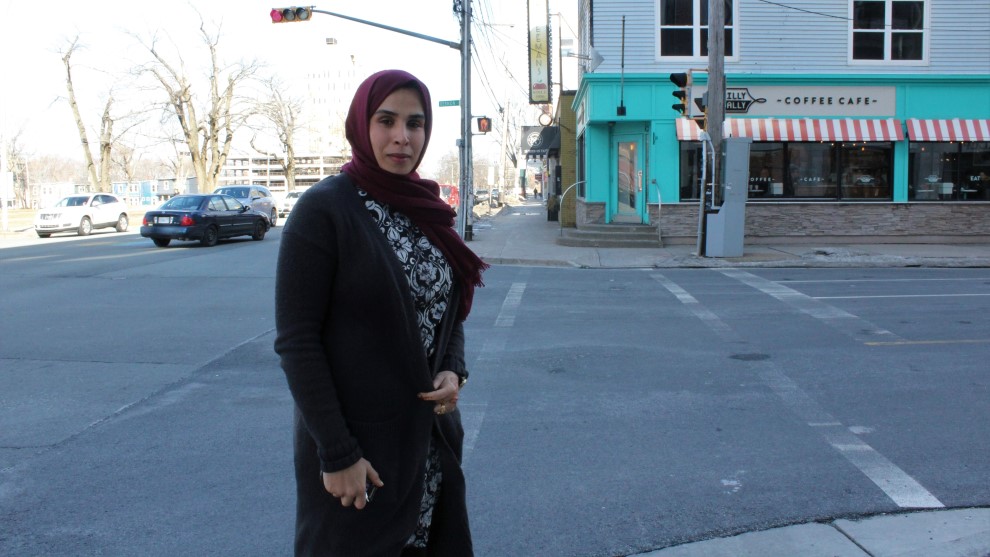‘Who’s still in Yemen? The people who cannot leave’
Halifax woman recalls harrowing days in her home country

caption
Nadia Qadi wants Haligonians to know that people are suffering in Yemen.Nadia Qadi remembers the bombs ripping up the streets she used to play on as a child.
“When I worked I would hear bombing in the direction of the schools and I feared that something had happened to my kids,” says Qadi.
Qadi immigrated to Halifax with her husband and four children two weeks before the official start of the civil war in Yemen in 2015.
She didn’t have the same worries about her children’s safety, but her first days in Canada were tough.
“I read all the news from Yemen and I cried all day. After that, I thought ‘OK, Nadia, stop’ because I would get depressed from seeing these things,” she says.
The news, Qadi says, showed how unthinkably difficult life for many people had become in an already impoverished nation.
“They eat any leaves from the trees they can take and they’ll cook it,” she says. “That’s the end of the line. A lot of people in Yemen, they live in hell.”
Civil war
The civil war officially started on March 25, 2015, when the newly established Houthi government staged an attack on the Hadi government’s forces at the airport of Aden, the current capital city of the Hadi government.
The conflict escalated when the leader of the Hadi government, President Abdrabbuh Mansur Hadi, sought aid from Yemen’s neighbour, Saudi Arabia. Saudi Arabia launched a military intervention, leading a coalition of nine countries to war against the Houthi Supreme Political Council in Sana’a.
Some commentators on the war distill the conflict down to a religious dispute between Shia and Sunni, two different branches of Islam.
This, Qadi says, doesn’t tell the full story.
“They [Houthis] aren’t fighting about people or the religion,” she says. “They are fighting over who is going to be the leader of this country.”
She says the Saudi airstrikes have been particularly alarming as they’ve been mostly focused on the city of Sana’a, where her family lives.
“Every day I pray to see them because I don’t know if some bombing will come to our home,” she says.
According to data from the Armed Conflict Location and Event Data Project published in December 2018, 60,000 people in Yemen have died from the fighting, including 6,480 civilians. Civilians have been the target of 3,071 attacks between January 2016 and November 2018.
“Sometimes I want to visit my mom. My brother had a wedding, I didn’t go to visit them,” says Qadi. “My sister now has a wedding coming up in April, but I can’t visit them because I have kids. If I go there I might not be able to get back.”
Food crisis
Yemenis have had to worry about food security since the fighting began.
According to the World Food Programme, despite ongoing humanitarian aid, 15.9 million people start their day hungry. That’s over half of the population of Yemen.
Food insecurity was common before the war but has become worse since then, Qadi says.
“We didn’t have any housing agencies, we didn’t have any food support, as in food banks,” she says. “We were just left waiting for assistance from the World Food Programme, UNICEF.”
Every day, 130 children under 5 were dying from extreme hunger & disease in #Yemen at the end of last year.
Nearly 50,000 children during the course of a year.
— UN Humanitarian (@UNOCHA) October 23, 2018
Yemen to Canada
Safe in Nova Scotia, Qadi has been working for the Halifax Regional Centre for Education. She met one other person from Yemen, then connected to others through social media. Together, they go out to eat, have parties and send support back to Yemen.
“Some Yemeni people here, we try to collect money from each other to send to Yemen and we do that every month,” says Qadi. “That money is not much, but it helps people.”
She says volunteers are also desperately needed in Yemen as most of their educated workers, including doctors and teachers, fled the country once the civil war erupted.
“They came to Canada, they went to the United States, Dubai because they were looking for a good life for their family,” says Qadi. “Who’s still in Yemen? The people who cannot leave.”
The Canadian government recommends avoiding all travel to Yemen. A travel advisory states that “the security situation has deteriorated significantly and foreigners are at extreme risk.”
Qadi says what is most needed in Halifax is awareness. Last month, she helped out at a charity dinner to support orphans in Yemen.
“It helps us to speak to people, you know?” she says. “This is Yemen. They are suffering.”
About the author
Cam Towner
Cameron is a 4th-year journalism student from Innisfil, Ontario, and has lived in Halifax since 2017. He works as the Head of Broadcast for the...
